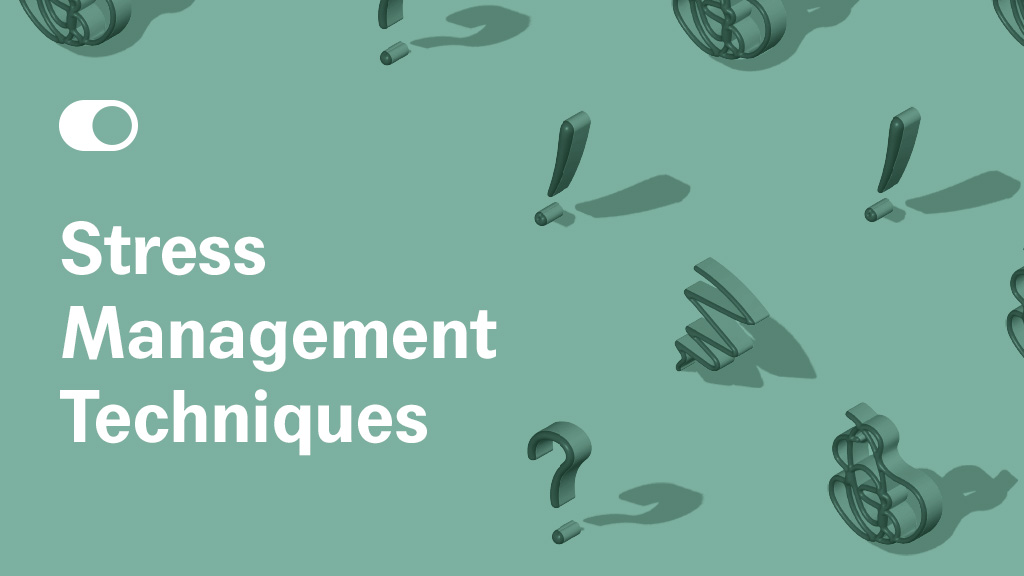
Stress Management Techniques
Stress Awareness
Everyone deals with stress sometimes—that feeling of pressure or tension when we’re faced with a challenge or demand. In small doses, stress helps us meet deadlines or even escape dangerous situations. But when stress builds for too long with too much intensity, it can negatively affect us physically and mentally. Since stressors are always around us, it’s important to be aware of what ours are and early signs they’re impacting us so we can better manage things before they get too intense or overwhelming.
Signs of Chronic Stress
Stressors are any event, situation, or relationship that causes you to feel stress. That feeling sparks the stress response cycle to help you respond appropriately. But if that cycle isn’t closed, the body and mind don’t get relief and the stress can become chronic, which leads to burnout.
Signs to look out for include:
How to Manage Stress
As much as you’re able, you’ll want to take action sooner than later if you notice a stressor doesn’t resolve. Things like journaling and mindfulness can help you be more aware of your feelings and better assess how stress impacts your day-to-day life. And luckily, we’ve got a bunch of practices you can try if you’re looking for ways to better manage stress.
Want to explore more about stress management?
Connect with your Care Team or therapist to identify your needs, work on self-awareness, and get support along the way.
Frequently Asked Questions
What are some common signs of chronic stress?
Disrupted sleep, decreased productivity, lack of motivation, poor decision-making, moodiness/irritability, gastrointestinal issues, headaches, tension, and high blood pressure..
What are some effective stress management techniques for people with busy, high-pressure lifestyles?
For individuals juggling numerous responsibilities and demands on their time, techniques like time management, task prioritization, and boundary setting may be particularly helpful in alleviating stress.
What role does social connection play in effective stress management?
Maintaining a strong support network of family, friends, and community can provide an important outlet for processing stress and gaining new perspectives. Fostering these relationships is a crucial but often overlooked aspect of holistic stress management.
How can physical activity beyond just “exercise” help alleviate stress?
Activities like yoga, tai chi, and even just taking regular walking breaks can help relieve muscle tension and stimulate the release of mood-boosting endorphins, complementing more traditional exercise routines.
In what ways can optimizing sleep hygiene have a profound impact on stress levels?
Ensuring adequate, high-quality sleep through practices like maintaining a consistent sleep schedule, limiting blue light exposure, and creating a restful sleep environment can significantly enhance the body’s ability to recover from and adapt to stressful situations.
What are some strategies for managing stress in the workplace specifically?
Techniques like time blocking, task batching, and learning to delegate or say “no” can help professionals create more structure and boundaries around their workload. Encouraging organizational cultures that prioritize employee well-being is also crucial.